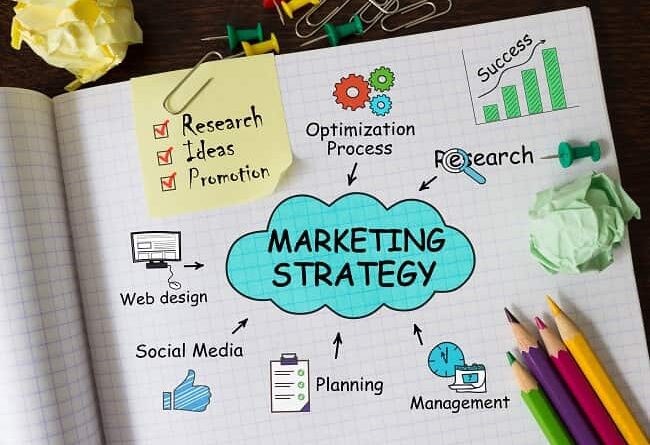Winning Strategies for B2B Marketing: A Detailed Look
Hello there, fellow marketers! I think we can all agree that understanding your audience is the golden ticket to marketing success, right? Now, when you step into the realm of Business-to-Business (B2B) marketing, having this understanding isn’t just a plus—it’s absolutely essential. We’re about to delve deep into the fascinating and intricate world of B2B marketing, and trust me, you’re in for a wild ride!
Whether you’re a newbie trying to find your footing, or a seasoned marketer looking for fresh input, you’re at the right place. We’re going to explore a plethora of winning strategies that will not just get your feet wet but will eventually face-lift your marketing game to new heights. Excited already? I thought so!
Understanding the B2B marketing landscape
Imagine you’re embarking on a journey through the wild, unpredictable, but thrilling landscape of B2B marketing! This section is your trusty tour guide. We’ll stroll through this unique terrain together, highlighting landmarks and potential pitfalls along the way.
Right off the bat, it’s crucial to understand the fundamental differences between B2B and B2C marketing. While they might appear similar at first glance, the decision-making processes in each are wildly different. Picture B2C as a spontaneous road trip with your best pals—decisions are often made quickly and based largely on emotion. On the other hand, B2B can feel like a carefully planned expedition—it’s influenced by multiple stakeholders, longer sales cycles, and involves more rational, less emotional decisions.
Another unique aspect of B2B marketing is the tailored challenges it presents. Unlike the broad and diverse audiences targeted by B2C marketing, B2B focuses on catering to specific industries or professionals. The messaging hence needs to be sophisticated, precise, and resonate with the buyer’s professional challenges and needs.
So, buckle up! This guide will arm you with the necessary insights to understand this fascinating world of B2B marketing. and help you navigate through its complexities effortlessly.
Effective Strategies for B2B Marketing
There’s a whole wealth of B2B marketing strategies available that can catapult your business to new heights. Importantly, content marketing has held its place as the king of such strategies for quite some time. It is all about creating and sharing informative, useful content that positions your company as an expert in your industry. Rather than directly promoting your products or services, the goal is to establish trust and credibility among potential customers. If you’re eager to learn more about content marketing, Content Marketing Institute is a reliable website that offers a comprehensive overview.
Moving just a stone’s throw, we find Search Engine Optimization (SEO) – a priceless key in any B2B marketer’s kit. SEO involves optimizing your web content so that it can be easily found by search engines like Google. This means using specific, highly-searched keywords in your content which can lead to improved visibility and higher rankings on search engine results pages (SERPs). The process might be complex, but understanding it can make a world of difference; Moz’s Beginner’s Guide to SEO is an excellent starting point for novices.
Then, we have social media strategy which is fast becoming crucial in this digital era. With the right strategy, social media can provide a platform for brands to not only share content but to engage directly with their customers, fostering stronger relationships. There are numerous platforms each with their unique demographics and uses; understanding the nuances of each can help you create a tailored strategy. Take a look at Buffer’s guide to start crafting your social media marketing plan.
Last but not least, influencer marketing is growing in popularity within the B2B world. It involves partnering with influential individuals who can help promote your product or service to their followers. This third-party validation can significantly bolster trust and credibility. However, implementing it effectively requires careful planning and strategy. Visit Influencer Marketing Hub for more in-depth knowledge on this topic.

Case Studies: B2B Marketing Success Stories
Learning from successful case studies is an excellent way to apprehend any business strategy, hence this section brings attention to companies which have exceptionally used the discussed strategies, leading to remarkable improvements in their conversion rates and consequently their marketing success. The highs and lows of these real-life business instances specifically highlight how a well-implemented strategy can bring about a positive turnaround and dramatically escalate conversion rates.
A comprehensive understanding of these success stories offers readers an insight into the practical application of the discussed strategies and offers a clear perspective on how strategy implementation can vary depending on business types and marketing goals. Each strategy conveys a unique approach to reaching desired marketing outcomes, thereby unveiling the potential impact on business growth and performance.
In conclusion, the takeaways from these success stories serve as a roadmap to effectively implement the outlined strategies in one’s own business. They provide inspiration and encouragement, even as they stress on the importance of adapting and tailoring the strategies to match specific business needs and requirements. After all, every business has its unique set of challenges and goals, and what worked for one might need some tweaking to work for another.
Conclusion: Tailoring your B2B Marketing Strategy
In essence, to conquer the battlefield of B2B (Business to Business) marketing, you need an intimate understanding of your environment. This includes, but is not limited to, having a keen awareness of your competition, potential and existing client base, economic conditions, as well as industry trends. It’s no easy task, and requires constant vigilance and adaptability. According to the Forbes Business Council, success in B2B marketing also relies on an agile approach, with a keen gut instinct for changes in market directions.
Moreover, simply applying a proven strategy doesn’t guarantee success. Each organization is unique and has specific demands, strengths, and challenges. Therefore, an effective marketing strategy needs to be tailored to the inherent exigencies of your specific business. As noted by Harvard Business Review, a company’s marketing strategy should directly reflect its unique culture, capabilities, and market positioning.
Most importantly, effective B2B marketing strategies are not built overnight. They develop from a cycle of planning, executing, analyzing, and refining. The value of feedback and results from previous marketing efforts cannot be overstated; it is through analyzing these responses that a marketing strategy can be fine-tuned and improved over time. An article from Business 2 Community emphasizes the importance of constant iteration of marketing strategies to maximize results.
In conclusion, there’s no one-size-fits-all solution to B2B marketing. It takes skill, creativity, adaptability, and a relentless pursuit of refining strategies based on feedback and results. With these components, your company is well on its way to achieving its marketing objective.
More about marketing:
Unveiling B2B Marketing Prowess: Propel Your Business to Unrivaled Success, click here
Marketing Strategy: Capitalizing on Growth Opportunities, click here
Understanding Clients Habits via Surveys click here
Ins and outs of JotForm click here
Amazon’s Marketing Strategy click here


